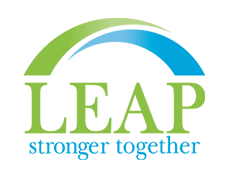Five Things Corporate Leaders Should Know About Accelerators
Accelerators are a confusing topic for many people, including those in entrepreneurship, small business, corporate leadership and beyond. And yet, they’re a growing tool to help support and… accelerate… the process of getting products and services to market, and helping companies of all sizes grow and thrive.
PROTO Accelerator, a multi-industry Corporate Innovation Platform, is focusing on solutions that can be implemented across industries and enterprises. In doing so, we’ve rounded up seven things we think corporate leaders should know about accelerators.
1. Accelerators and incubators are not the same thing.
Wikipedia actually does a good job of explaining what an accelerator is, and how it’s different from the more commonly known incubator:
“Seed accelerators, also known as startup accelerators, are fixed-term, cohort-based programs, that include mentorship and educational components and culminate in a public pitch event or demo day. While traditional business incubators are often government-funded, generally take no equity, and focus on biotech, financial technology (FinTech), medical technology (MedTech), cleantech or product-centric companies, accelerators can be either privately or publicly funded and focus on a wide range of industries. Unlike business incubators, the application process for seed accelerators is open to anyone but highly competitive. There are specific types of seed accelerators, such as corporate accelerators, which are often subsidiaries or programs of larger corporations that act like seed accelerators.”
2. There’s a growing need for revolutionary ideation.
From 2008 – 2018, Michigan received a 250% increase in startup investment. Eighty percent of surveyed executives believe they must innovate at an increasingly rapid pace to maintain the competitive edge necessary for success. This is where accelerators come in — connecting large scale companies with start-ups that can operate at a faster pace and help maintain that competitive edge.
3. Startups and accelerators have a symbiotic relationship.
As PROTO Accelerator President Tony Willis puts it: ”Corporations have the money, the market share. Startups have the ability to create solutions on a faster basis than a corporation typically could. Within an accelerator, the biggest benefits with startups is that they get to build relationships and connectivity with the C-suite and the movers and shakers of those large entities and not just them, but also the ones that those managers or specialists that are deep in the certain areas that their startup is a line to work with. So you will get to understand what is their infrastructure for IT? How do they engage with different target markets, their marketing strategy? If they’re looking at the solution for their attorneys or for employees, startups can better understand their HR. So it’s really the knowledge pool that is probably the biggest thing that the startups get is the connectivity and the knowledge from the folks that are running the organization, are running those specific teams or departments.”
4. Metro Lansing, Mich. has an accelerator program.
Launched in 2019, PROTO Accelerator lays pathways to enhance ideation, portfolio management and innovation metrics for Michigan’s enterprise-solutions organizations and provide startups with equity investment, expert guidance and connectivity with industry leaders to technology startups. A place for entrepreneurs to launch, trial and adapt creative ideas.
5. Accelerators are highly structured (and some come with cash).
While some of the greatest benefits for enterprise organizations to partner with startups through an accelerator program are the speed, agility and outside — often global — perspectives startup founders bring, the programs themselves are highly structured, rooted in cohorts, or a specific group of startups who move through the program together at the same time and pace. They progress through defined curriculum and steps to ensure the acceleration of their businesses results in strong proof of concept, with some being acquired or selling their technologies to their corporate partners. And many provide seed funding for startups upon completion of the program.
One example? PROTO Accelerator, focused on advanced manufacturing, Medtech, insurtech, fintech and biotech, among others, provides a $60,000 investment to the selected startups. Startups progress through a three-month curriculum with industry-specific programming, mentorship and individualized support. And the participants are connected to a mentor network including growth industry leaders in a wide variety of fields.
Although accelerators can initially seem overwhelming, this list is a great start to understanding and benefiting from, these programs. The partnerships accelerator programs offer may be the innovation tool corporate leaders need.
To learn more about PROTO Accelerator, visit http://www.protoaccelerator.com/ or email tony@purelansing.com.
Category: Entrepreneurship, PROTO Accelerator


